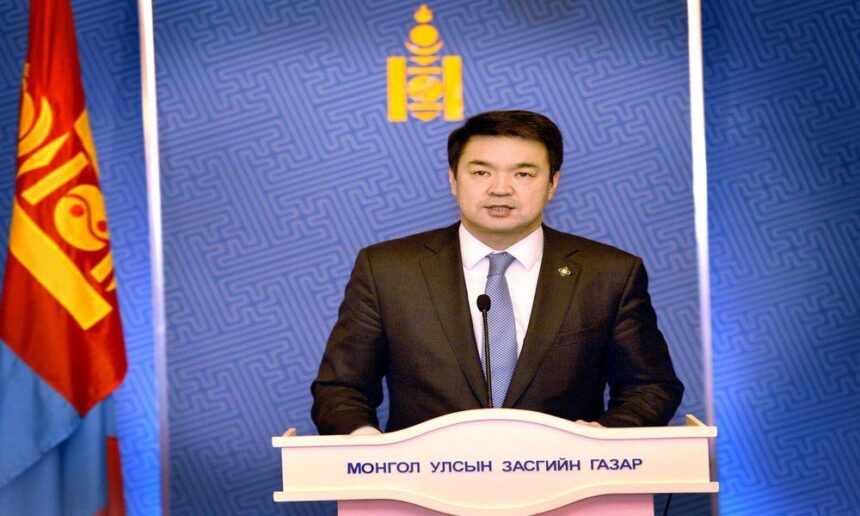Having been appointed as Prime Minister, Ch.Saikhanbileg said, “The new government shall have three areas of focus: economy, economy, and economy,” and stressed the need to, “diagnose our economy as a whole system.” There is an apparent need to diagnose our economic system, find out why there is a decline, and what treatment can be applied.
An economic system concerns the location of factors of production, the allocation of value that has been created, and the use of goods and services that have been produced. The history of mankind shows that an economic system is most optimal when it is based on free choice and a free market. A free market is truly achieved only in countries that protect private property. Only in a free market can people take part in labor relations that allow them to freely choose and own what work they do.
There is no such thing as free exchange, selling and buying land, or a capital market in a socialist society because the factors of production, land, and capital belong to the government. There is also no stock exchange. For these reasons, for half a century we have abandoned the socialist path we once followed.
A free market can only be achieved in a country that has a political system based on the choices of the majority of citizens and an election system that provides an opportunity for evaluation and improvement in a certain amount of time. A society that has such a political and economic system is described as democratic and capitalist. Twenty years ago, Mongolians chose to build such a society and started giving the ruling power to a single political party by holding a democratic, free election.
However, the privatization process that started strong in the beginning of the transition period gradually stopped. Moreover, many new state-owned companies have been established since 2010. We have deviated from our chosen path, and sometimes even tend to step back. Increasing government involvement rather than supporting private property relations has become favorable for the ruling political parties.
The increased number of state-owned companies have led to the private sector slowly losing its competitiveness, which was only starting to be built. It allows the ruling political parties to fulfill their self-interests by using the power they have. Public scrutiny, which is the soul of a democratic system, has been missing in Mongolia. As a consequence, there has been no scrutiny and supervision of state property. It created a system where profit can be made from public tenders, where political parties have already set their boundaries. People have been kept silent through social welfare.
Politicians are keeping the secret that the political parties that have obtained the ruling power, one after another, get the enormous sums of money they use for political party and campaign financing. Public service has been turned into currency by those who collect the biggest donations, promise seats and positions, win elections, and make payments afterwards. Consequently, the walls of Mongolian government are now covered by the moss of corruption.
The economic difficulties that have been built up for years, which were mentioned by Prime Minister Saikhanbileg, trace back to the secret financing of political parties. We politicized the Oyu Tolgoi project, promised free cash during election, and shocked investors by passing the strategic sector investment law and the “long-named” law just before the 2012 parliamentary elections. Also, the investment that came from mining exploration stopped. A total of 106 licenses were withdrawn, which led to many consequences, while the unhealthy politicization of Oyu Tolgoi kept going. The development at the Tavan Tolgoi deposit was also suspended. Politicians continued holding press conferences that sounded like pure populism and there was a lot of mistreatment and abuse of foreign and domestic investors.
The main cause of Mongolia’s economic decline is corruption in governance. It can be argued that the source of corruption is the financing of political parties. This is the result of an accurate diagnosis.
It is true that Mongolians are reaching into their pockets to pay for the consequences of this disease. Hence, our economy is gradually declining. As a result, the Mongolian tugrug declined by 30 percent within one year and the inflation rate reached 13 percent. The next economic crisis is imminent.
In order to cure this disease, the parliament has to pass certain laws around political party financing. Until then, a significant step that the Prime Minister can take is to refuse appointing a member of parliament as a minister in his cabinet.
It looks like the Prime Minister will not waste any time to reduce state ownership and provide a mechanism for scrutiny. It is a wise decision to make it clear who owns what state properties and turn state-owned companies into shareholding companies with public ownership. It is also good that he plans to start economic diversification, supporting revenue from tourism, information technology, and agriculture. However, the important thing is promoting competition in the private sector and creating an environment that supports equality within these industries.
Prime Minister Saikhanbileg might acquire a huge, long-term, soft loan from China to cover the upcoming loan payments. The loans could last 30 to 40 years and will finance infrastructure projects including railroads. It means that Mongolia will be trading with our two neighbors using their money.
The government is about to start providing support when a commercial bank attempts to raise capital from abroad. There have also been promises to support the private sector, improve the business environment, pass laws for special permits and licenses, and ease tax and customs difficulties. They will be significant initiatives to overcome economic decline, even if the government only manages to start them. However, will the political party negotiations – not knowing how and when they will end – provide an opportunity to work in such an unrestrained manner? If living standards improve and people are living nicer lives, the economic system is functioning correctly.
2014.11.26












